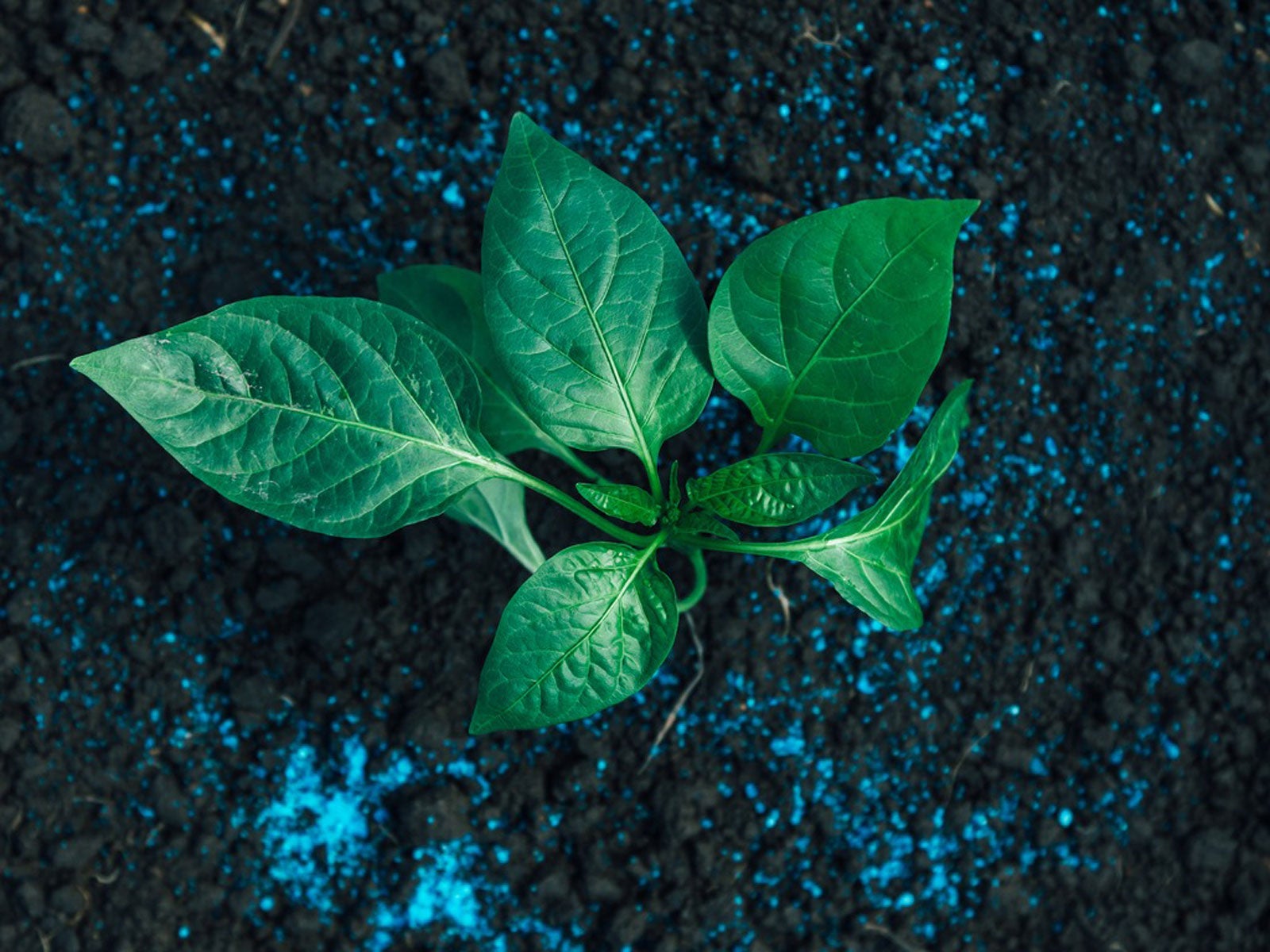Best Fertilizers for Peppers: Attain Superior Results in Your Garden
Best Fertilizers for Peppers: Attain Superior Results in Your Garden
Blog Article
Organic Vs. Synthetic Fertilizers: Which Is Best for Supporting Healthy And Balanced Pepper Plants?
In the realm of supporting healthy and balanced pepper plants, the selection between artificial and natural fertilizers stands as a crucial decision with significant ramifications. While both choices objective to give crucial nutrients to support plant growth, the subtleties of their influence on the soil, plant wellness, and the atmosphere spark a debate that mirrors throughout the gardening area. Comprehending the distinct advantages and prospective challenges of each plant food kind is vital for pepper farmers looking for to optimize their yields while keeping a lasting and eco-conscious strategy.
Benefits of Organic Plant Foods
Organic fertilizers provide an environmentally-friendly and lasting approach to nourishing pepper plants, offering necessary nutrients without making use of artificial chemicals. These all-natural fertilizers are originated from organic resources such as compost, manure, bone dish, and seaweed, advertising soil health and wellness and biodiversity. Unlike synthetic fertilizers, organic choices release nutrients slowly, making sure a steady and balanced supply for pepper plants to flourish.
One substantial advantage of organic plant foods is their capacity to boost soil structure and water retention. By boosting soil health and wellness, natural plant foods advertise advantageous microbial activity, which helps in nutrient uptake by pepper plants. In addition, natural fertilizers decrease the threat of chemical run-off, securing water resources from pollution and protecting the setting.
Moreover, organic fertilizers add to lasting dirt fertility by advertising the development of advantageous soil organisms. These organisms help break down natural matter, releasing nutrients in a type that is conveniently obtainable to pepper plants. best fertilizers for peppers. By cultivating a healthy soil ecological community, natural plant foods support lasting pepper farming methods that profit both plants and the setting
Drawbacks of Artificial Fertilizers
Artificial plant foods, unlike their natural counterparts, pose different drawbacks when utilized to nourish pepper plants, affecting both plant wellness and environmental sustainability. One significant downside of artificial plant foods is their propensity to leach nutrients from the soil quickly. This quick leaching can result in vitamins and mineral imbalances in the dirt, causing plants to suffer from shortages or poisonings. Furthermore, synthetic fertilizers can damage useful soil organisms, such as earthworms and beneficial germs, interfering with the soil environment's equilibrium.
Moreover, the overuse of synthetic plant foods can add to water contamination. Excess fertilizers not soaked up by plants can remove into water bodies, bring about eutrophication, where algae flowers deplete oxygen degrees in the water, damaging water life. Additionally, synthetic fertilizers are usually obtained from non-renewable sources, such as nonrenewable fuel sources, contributing to carbon exhausts and ecological deterioration throughout their production.
Nutrient Absorption Contrast
Effective nutrient absorption plays a critical role in the overall health and wellness and development of pepper plants. When comparing artificial and organic plant foods in terms of nutrient absorption, organic plant foods have the benefit of providing an extra balanced and slow-release resource of nutrients (best fertilizers for peppers). Organic plant foods contain a selection of macro and micronutrients that are not just valuable for the plants yet likewise promote healthy soil microbial task, which assists in nutrient uptake. On the various other hand, synthetic plant foods commonly give a quick launch of nutrients, which can result in seeping and overflow, resulting in lower nutrient absorption rates by the plants.
In addition, natural plant foods enhance soil framework and water retention capacity, permitting pepper plants to gain access to nutrients more successfully. This improved soil top quality promotes origin advancement, making important site it possible for far better nutrient absorption. Artificial plant foods, although initially improving plant continue reading this development as a result of their high nutrient concentrations, may hinder long-lasting nutrient absorption by derogatory soil wellness gradually.
Environmental Impact Considerations

On the various other hand, synthetic plant foods, although commonly even more right away available and focused to plants, can have harmful effects on the environment otherwise applied correctly (best fertilizers for peppers). Their manufacturing calls for high power inputs, bring about greenhouse gas discharges and adding to environment adjustment. Moreover, the drainage of excess artificial plant foods can infect water resources, resulting in eutrophication and hurting marine ecological communities.
Best Plant Food Practices for Peppers
To achieve this, it is crucial to adhere to finest plant food methods customized to the details demands of pepper plants. One vital method is to carry out a soil test before applying any kind of fertilizers.
An additional crucial technique is to feed pepper plants at the correct time. Typically, peppers take advantage of receiving plant food at planting and afterwards once again when they begin to blossom. Over-fertilizing can bring about nutrient imbalances and hurt the plants, so it is essential to comply with recommended application rates.
In addition, choosing a balanced fertilizer with an NPK proportion that fits pepper plants' requirements is essential. Inevitably, combining synthetic and organic plant foods judiciously can aid support healthy and balanced pepper plants while minimizing ecological impact.
Conclusion

Organic fertilizers use an environmentally-friendly and lasting technique to beneficial pepper plants, giving crucial nutrients without the usage of artificial chemicals. Unlike artificial fertilizers, organic options release nutrients slowly, guaranteeing a stable and well balanced supply for pepper plants to grow.
Synthetic plant foods, in contrast to their organic counterparts, posture different negative aspects when utilized to nurture pepper plants, affecting both plant wellness and ecological sustainability. When contrasting organic and artificial fertilizers in terms of nutrient absorption, organic fertilizers have the advantage of giving an extra well balanced and slow-release resource of nutrients.Furthermore, natural fertilizers boost soil structure and water retention ability, permitting pepper plants to access nutrients much more efficiently.
Report this page